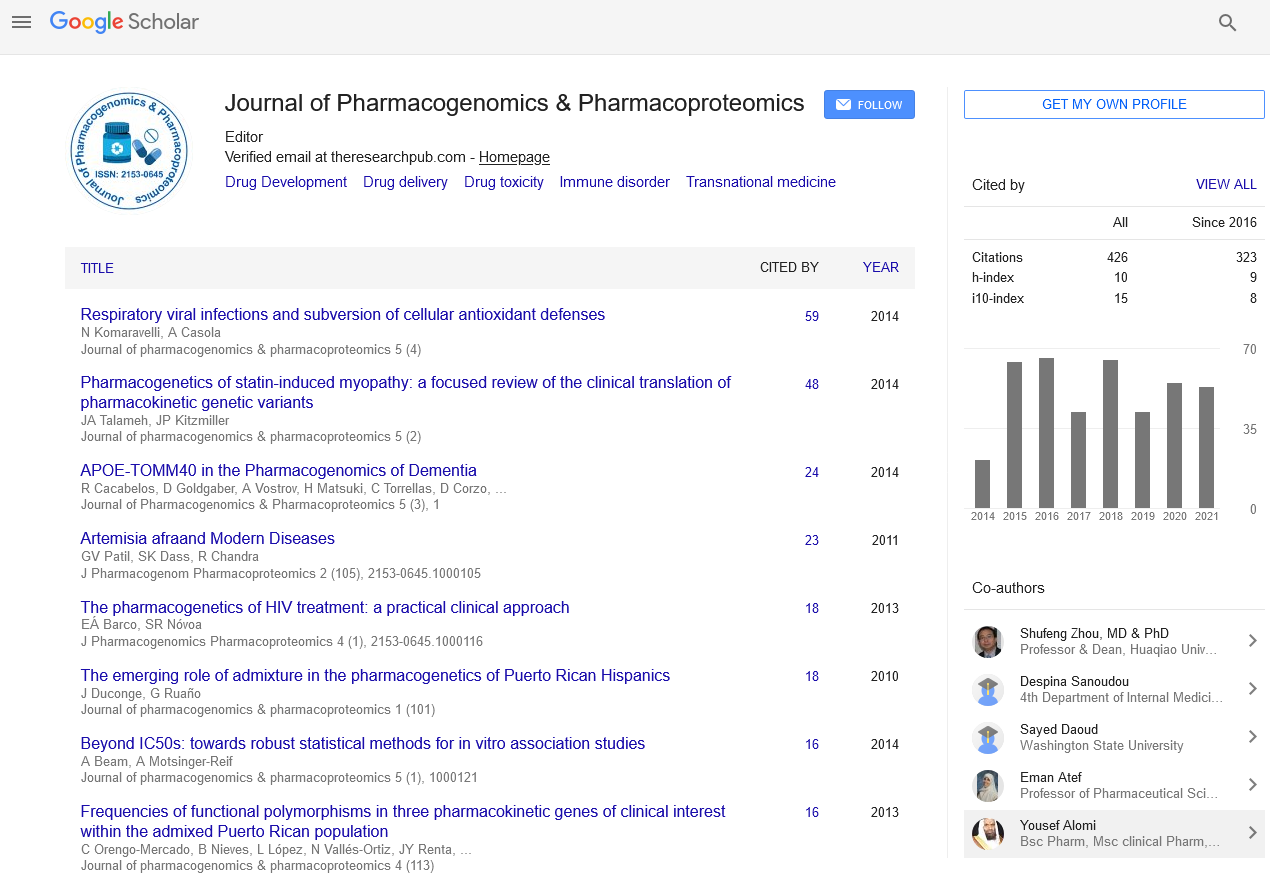Indexed In
- Open J Gate
- Genamics JournalSeek
- Academic Keys
- JournalTOCs
- ResearchBible
- Electronic Journals Library
- RefSeek
- Hamdard University
- EBSCO A-Z
- OCLC- WorldCat
- Proquest Summons
- SWB online catalog
- Virtual Library of Biology (vifabio)
- Publons
- MIAR
- Euro Pub
- Google Scholar
Useful Links
Share This Page
Journal Flyer

Open Access Journals
- Agri and Aquaculture
- Biochemistry
- Bioinformatics & Systems Biology
- Business & Management
- Chemistry
- Clinical Sciences
- Engineering
- Food & Nutrition
- General Science
- Genetics & Molecular Biology
- Immunology & Microbiology
- Medical Sciences
- Neuroscience & Psychology
- Nursing & Health Care
- Pharmaceutical Sciences
Abstract
Glucose-6-Phosphate Dehydrogenase Deficiency in Children from 0 to 14 Years Hospitalized at the Pediatric Hospital David Bernardino, Luanda, Angola
Miguel Brito, Chissengo Lucama Tchonhi, Brigida Santos and Luisa Veiga
The Glucose-6-phosphate dehydrogenase (G6PD) deficiency is the most common enzymatic defect in the world. The most common clinical manifestations are acute hemolytic anemia associated with drugs, infections, neonatal jaundice and hemolytic non-spherocytic chronic anemia. The main aim of this study was to determine the frequency of major genetic variants of G6PD leading to enzyme deficiency in children from 0 to 14 years at a Pediatric Hospital in Luanda, Angola. A cross-sectional and descriptive analytical study covered a total of 194 children aged from 0 to 14 years, of both genders and hospitalized at the Pediatric Hospital David Bernardino, Luanda between November and December, 2011. The G202A, A376G and C563T mutations of the G6PD gene were determined by real-time PCR with Taqman probes. The disabled A-/A- genotype was detected in 10 girls (10.9%). Among the boys, 21 (20.6%) presented the genotype A-. Considering all the samples, the A- variant was observed in 22.4% of cases. The Mediterranean mutation was not detected in the Angolan sample. Furthermore, no association was found between genotype and anemia, nutritional state and mucosa color. A significant association, however, was observed with jaundice. Based on the results obtained, there is a clear need to identify those with the disabled genotype in the Angolan population in order to avoid cases of drug-induced anemia, particularly in the treatment of malaria, so prevalent in Angola.


